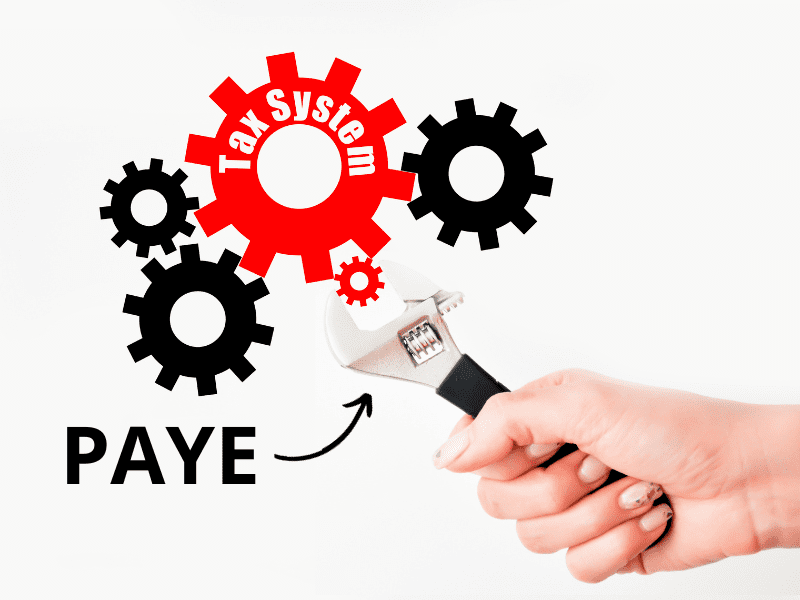
Have you ever wondered about what Pay As You Earn (PAYE) is and how it works with self-assessment? In many cases, PAYE can seem a little difficult to understand. However, this shouldn’t have to be the case – and our experts are here to help.
So, we’ve outlined some of the main things you need to know about Pay As You Earn / PAYE systems. But remember, if you need any support with your own PAYE, don’t hesitate to contact your local “accountant near me!” They should be able to provide you with further insights into how these systems work.
What Are Pay As You Earn / PAYE Systems?
Before we go any further, it’s first essential to define what a PAYE system is. Compared to self-assessment, where self-employed individuals pay their taxes generally at the end of a tax year, Pay As You Earn systems work by deducting taxes automatically from an individual’s earnings.
PAYE is generally implemented as part of the business’s payroll system. This system allows workers to pay their taxes automatically without worrying about it.
How Do Pay As You Earn Systems Work?
Pay As You Earn systems deduct tax from an employee’s payments. These payments will generally include their salary or wages, tips, bonuses, and sick/maternity pay. Tax and national insurance are then deducted from the employee’s payment as standard if they meet payment thresholds; pension contributions and student loan repayments will generally also be deducted through a PAYE system.
What are the Benefits of a Pay As You Earn / PAYE System?
There are numerous benefits associated with a Pay As You Earn system for both the employees and the employer. Keeping these in mind can help you understand more about a PAYE system’s benefits.
Benefits for an Employee
PAYE is incredibly important for many employees. These perks could be worth keeping in mind as part of your overall understanding of the system. Some of the main benefits include:
Simple solution: One of the main benefits of Pay As You Earn systems is that they’re simple and easy to use. There’s no need to worry about paying taxes through self-assessment (unless there’s an additional source of self-employed income). After all, self-assessment payments can be somewhat stressful for many people. Luckily, PAYE handles this on the employee’s behalf, meaning they can spend time doing other things instead.
Reduced risk of tax arrears: Because taxes are directly deducted from the employee’s payments, there’s no need to pay a large lump sum of money at once. This can make it much easier for employees to afford their tax payments. Otherwise, it’s much easier for an employee to fall into tax arrears.
More predictable tax payments: Self-assessment can be a little hard to predict, leaving people unsure about how much they’ll have to pay at the end of the year. Luckily, PAYE takes more predictable tax payments for employed workers, making it much easier to budget appropriately.
Of course, it’s worth noting that some employees may need to complete a self-assessment if they have additional self-employed income. So, just because an employee pays tax through PAYE on some of their income doesn’t mean that’s all they’ll pay.
Benefits for an Employer
In addition to the benefits for the employees themselves, Pay As You Earn systems can also provide benefits for the employer. Some of the main benefits include:
Streamlined solution: Did you know that PAYE is actually integrated directly into your payroll processes? This helps streamline paying taxes on behalf of employees, making things a little easier to manage for your firm.
Compliance: Depending on your business, registering for PAYE may be a legal requirement. As such, registering for Pay As You Earn is vital to keep a business compliant with tax legislation.
Do All Businesses Need to Register for PAYE?
Not all businesses necessarily need to register for PAYE. For example, PAYE may not always be necessary for firms whose employees all earn less than £123 per week and do not have another job, a pension, or expenses and benefits. Thus, this could help you find out more about whether your business will need to sign up for PAYE.
However, the vast majority of firms will nonetheless need to register for Pay As You Earn. As such, it’s well worth reaching out to a professional accountant to find out more about the registration process. Don’t worry; once you’ve got professional support, it’s actually pretty easy to do.
How to Register for PAYE
Your local professional “accountant near me” should be able to help you register for Pay As You Earn. Fortunately, the process is very simple.
Most businesses will register for PAYE online. Once you have registered as an employer, you will then need to obtain a PAYE number. Remember here that you must be registered before your employees’ first payday; it can take a while for your PAYE number to arrive. As such, it’s advisable to register as an employer and set up PAYE before your first employees start work.
Once you have registered for PAYE, you’ll need to provide HMRC with several pieces of information on an ongoing basis. This includes informing HMRC when a new member of staff joins the team. In addition, if a staff member’s circumstances change, this may also be important to mention. This could include reaching the state pension age or getting promoted to a business director.
How Often Do Businesses Pay?
Generally speaking, most businesses will pay their Pay As You Earn payments every month. This money is taken directly from the employee’s earnings. However, there may be exceptions for some businesses. For example, small businesses that pay less than £1500 a month may be able to request quarterly payments instead.
Get Further Support From an Accountant Near You Today!
Ready to begin learning more about PAYE systems and how they work? If so, please don’t hesitate to get in touch with your local “accountant near me” for extra support. Indeed, in many cases, it can seem a little tricky to know where to turn regarding PAYE systems. This is often true both as an employer and an employee. And, once you’ve gotten started with your PAYE system, things can feel a lot easier as a result.
So, please don’t leave this to chance; if you’d like to learn more, our friendly experts will be here to support you further. Contact us for further guidance on getting started with PAYE for your business. Alternatively, if you have more specific questions, we’ll do our best to help you find the right answers.



